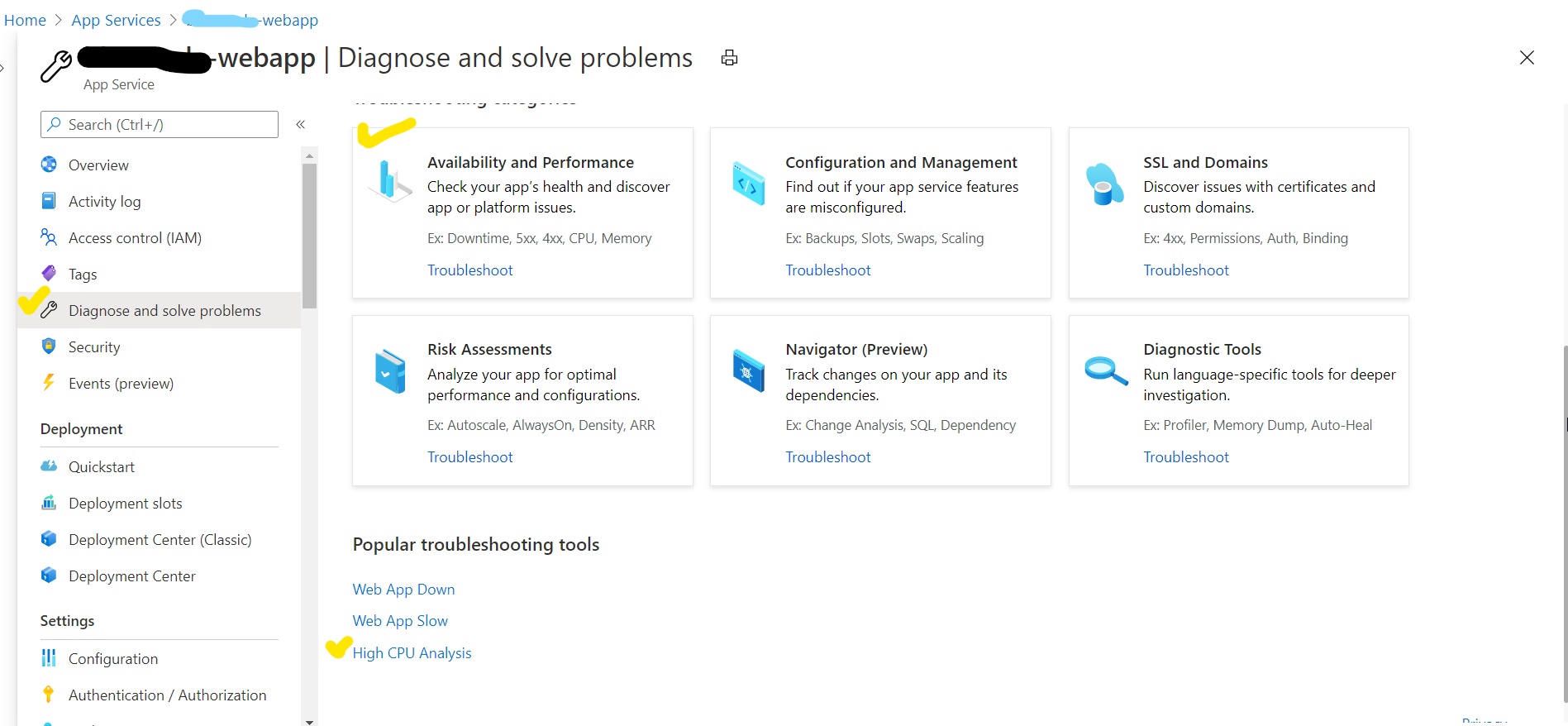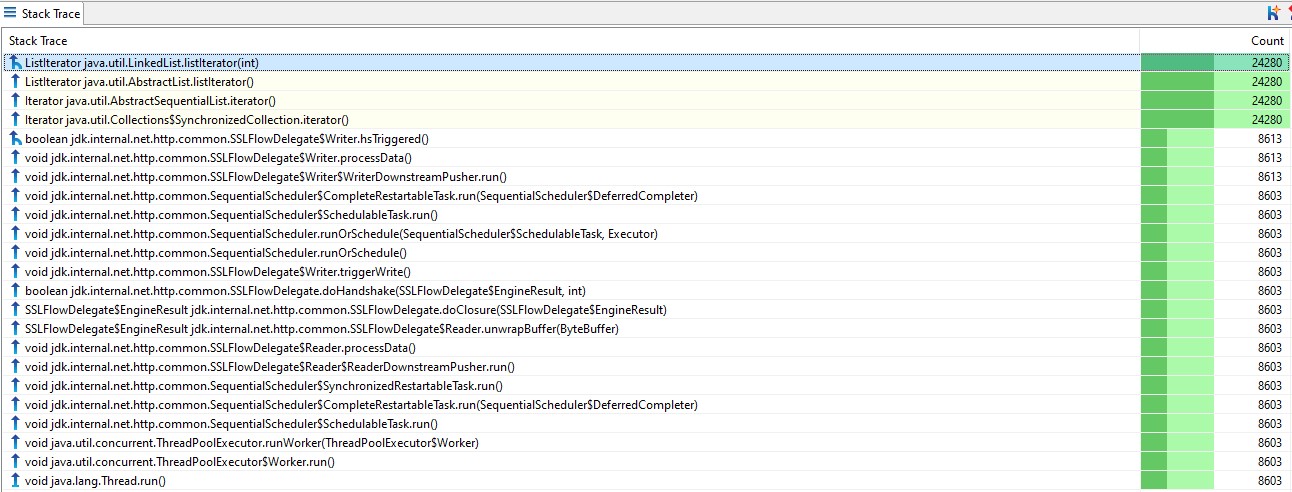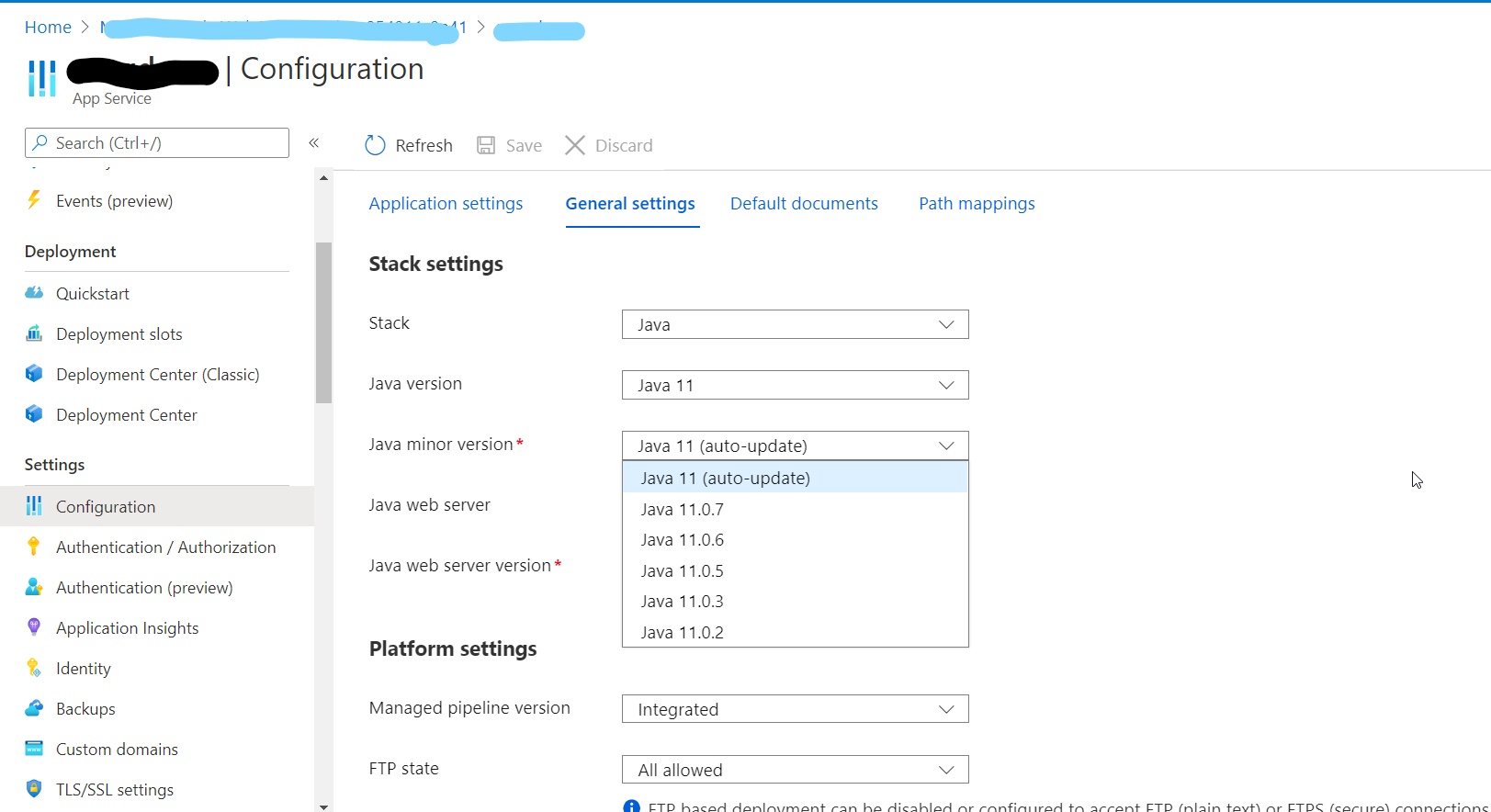Thanks for asking question! If I have understood right you are having Java Web application in Azure App Services on a Windows App Services Plan and facing High CPU issues.
You may want to know that Azure App Service provides an intelligent and interactive experience to help you troubleshoot your app with no configuration required. When you do run into issues with your app, the diagnostics tool will point out what’s wrong to guide you to the right information to more easily and quickly troubleshoot and resolve the issue.
To access App Service diagnostics, navigate to your App Service app in the Azure portal. In the left navigation, click on Diagnose and solve problems.

You may refer to this detailed blog on deep dive on Diagnosing CPU utilization issues in Azure App Service built using any framework such as ASP.NET, Node, PHP, or Java running on a dedicated hardware tier (Basic or higher).
Please let us know if you have any query on this or issue persists.

